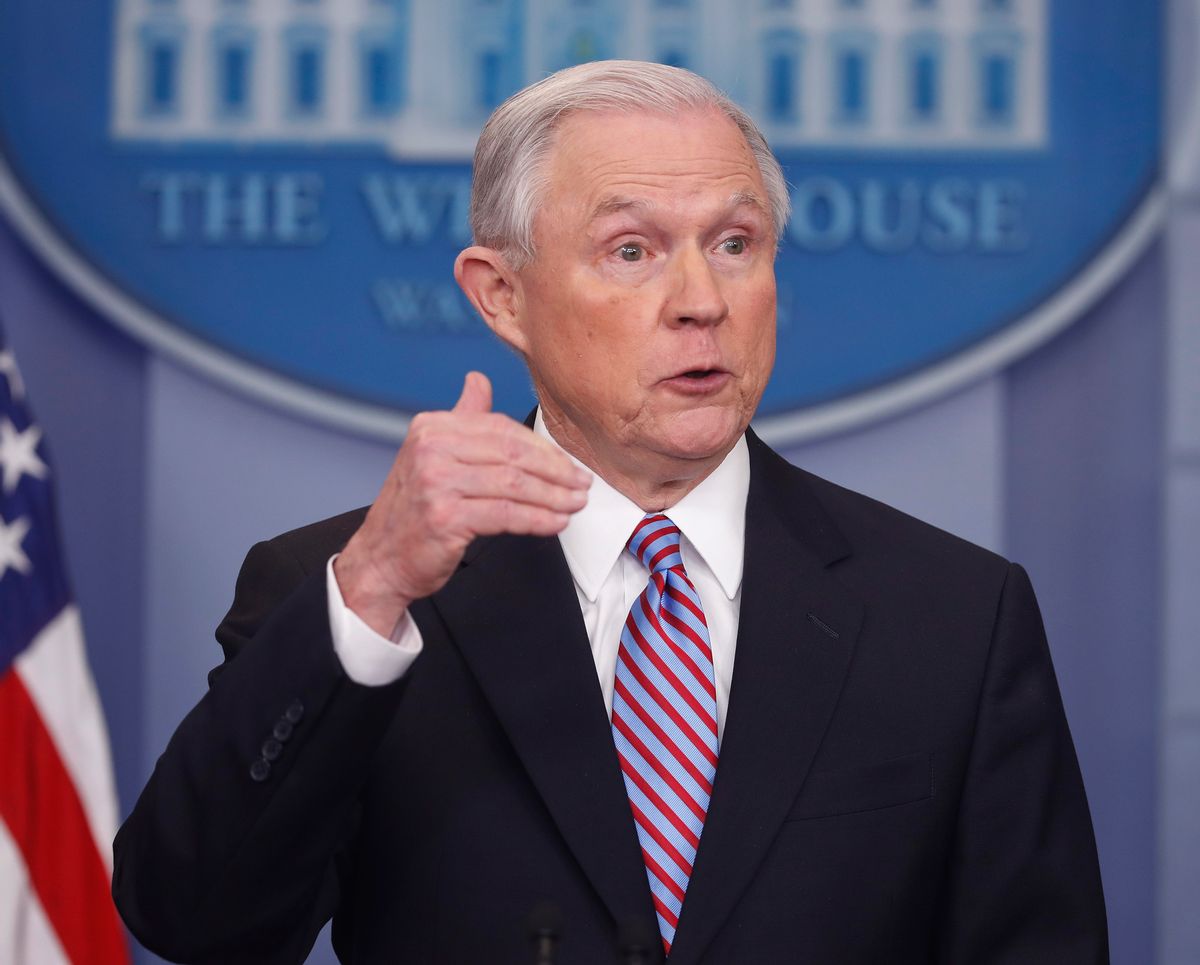What happened to RussiaGate?
A month ago, the headlines were flowing. National Security Adviser Michael Flynn had been fired for lying about his meeting with Russian Ambassador Sergey Kislyak. Attorney General Jeff Sessions had to recuse himself because he lied, under oath, about what he knew of the meeting.
The House Intelligence Committee investigation was investigating possible connections between Russian officials and President Trump’s entourage, as well as Trump’s false March 4 Twitter blast claiming that President Obama had wiretapped him.
The partisan conflict grew more heated. Committee Chairman Devin Nunes (R.-Calif.) denounced unnamed officials for criminally leaking classified information. Then he paid a late-night visit to the White House to review classified documents that he said confirmed Trump’s claim. Actually, they didn’t. Nunes' antics were so egregious, he had to recuse himself from the probe. He was succeeded by Representative K. Michael Conaway (R-Texas) from whom little has been heard.
The Senate Intelligence Committee then launched its own investigation. In a "conspicuous display of bipartisanship," chairman Sen. Richard Burr (R-North Carolina) and ranking member Sen. Mark Warner (D-Virginia) promised a thorough probe.
“This investigation’s scope will go wherever the intelligence leads,” Burr said during a rare joint news conference.
Radio Silence
A month later, the Russia investigation is generating mostly radio silence.
FBI director James Comey has gone mum. After shooting down Trump’s false wiretapping claim, he has reverted to “no comment" mode.
The Senate investigation has stalled, apparently because Burr won’t issue the subpoenas the Democrats want. Insiders describe a "standoff" between Republicans and Democrats on the committee.
But the fireworks may resume next week when former Deputy Attorney General Sally Yates testifies to the Senate. Yates has let it be known she will contradict President Trump’s claim that he did not know Flynn had lied to Vice President Mike Pence about his meetings with Kislyak.
The House investigation will also resume later this month. Yates, former CIA director John Brennan and director of National Intelligence James Clapper have been invited to testify. No date has been set for that hearing.
The steady drip, drip, drip of revelations that drives a real Washington scandal toward political consequences has slowed. But has it stopped?
Watergate or Whitewater?
Critics suggest that as scandals go, Trump’s dealings with Russia are more Whitewater than Watergate, more Benghazi than Iran-contra. They see investigation via innuendo that never leads to any real revelations of wrongdoing, only more “connecting of dots,” finding links and spinning of theories.
The Democrats who parse the story, writes J.M. Bernays in The Baffler, are mired in the "politics of melancholy":
"[T]he dauntless pursuit of this crusade, despite a distinct lack of credible evidence, serves multiple purposes. It deflects blame for a historic, humiliating failure; since that failure is conveniently blamed squarely on foreign meddling, it provides a rationale to continue ignoring criticism from the political left...."
And yet: Even if the Russia investigation is a political excuse for Clinton’s loss, that doesn’t mean the Trump campaign did not collude with the Russians. Just because Clinton ran an inept campaign and wants to blame someone besides herself does not mean she's wrong about Russian interference.
As Yates' already-leaked testimony suggests, all the president’s men continue to dissemble. In the first 100 days of the Trump presidency, the official story mutated several times.
The White House first denied there were any substantive contacts between the Trump entourage and the Russians. Then the official story became: Yes, there were contacts, but they concerned logistics, not U.S. sanctions on Russia. Then: Well, yes, there were conversations about sanctions, but Flynn lied about them and we fired him as soon as we learned. And now, it seems, the White House knew Flynn lied and didn’t fire him, but—
While the pace of revelations has slowed, the unresolved fact pattern has only grown more incriminating as the White House posture has become more defensive.
Flynn, who is vulnerable to legal charges that he failed to comply with the Foreign Agents Registration Act, is now seeking immunity in exchange for speaking with investigators, raising the prospect that he could reveal other undisclosed contacts, or a broader conspiracy.
"General Flynn certainly has a story to tell, and he very much wants to tell it, should the circumstances permit,” Flynn’s lawyer told Evan Osnos of the New Yorker magazine.
The FBI investigation of Trump’s former campaign chairman, Paul Manafort, and former foreign policy adviser, Carter Page, continues.
The possibility of collusion between the Trump campaign and a foreign power is not a Clintonian invention, but a matter of accumulating facts.
Fact Pattern
Manafort's dealings with the Russians are pregnant. He clearly arranged the revision of the Republican Party platform on Ukraine, bringing the GOP into rare agreement with the Obama administration that the U.S. should not escalate the conflict.
The FBI has also described Carter Page, in court filings, as having connections to Russian agents.
After distancing himself from Manafort and Page, Trump has taken to attacking Comey, a sure sign that the president is worried. The enduring question is whether there was a quid pro quo between the Russians and the Trump campaign.
The key is Manafort. He, much more than Flynn or Page, was Trump’s interlocutor with the Russians. As the Associated Press reported in March, Manafort signed a $10 million contract in 2006 with Oleg Deripaska, a Russian oligarch who was then a close Putin ally. Manafort pitched a plan to improve Putin’s image in the United States.
“We are now of the belief that this model can greatly benefit the Putin government if employed at the correct levels with the appropriate commitment to success,” he wrote to Deripaska.
Did Manafort offer his services to Putin a decade later as Trump’s bid for the presidency gained momentum? There’s no evidence he did, but it is not an unreasonable question, especially because there's no evidence that the White House cares to answer it. The drip, drip, drip is not over.





Shares